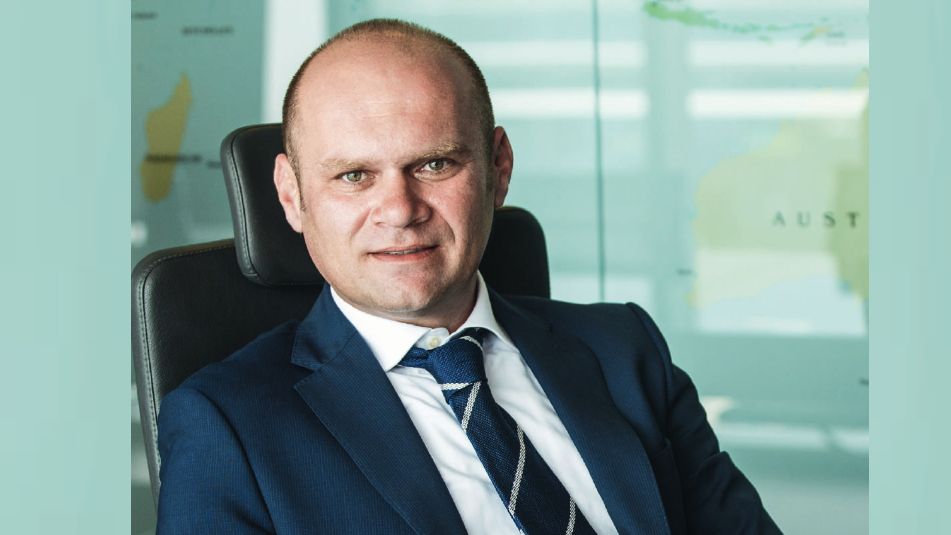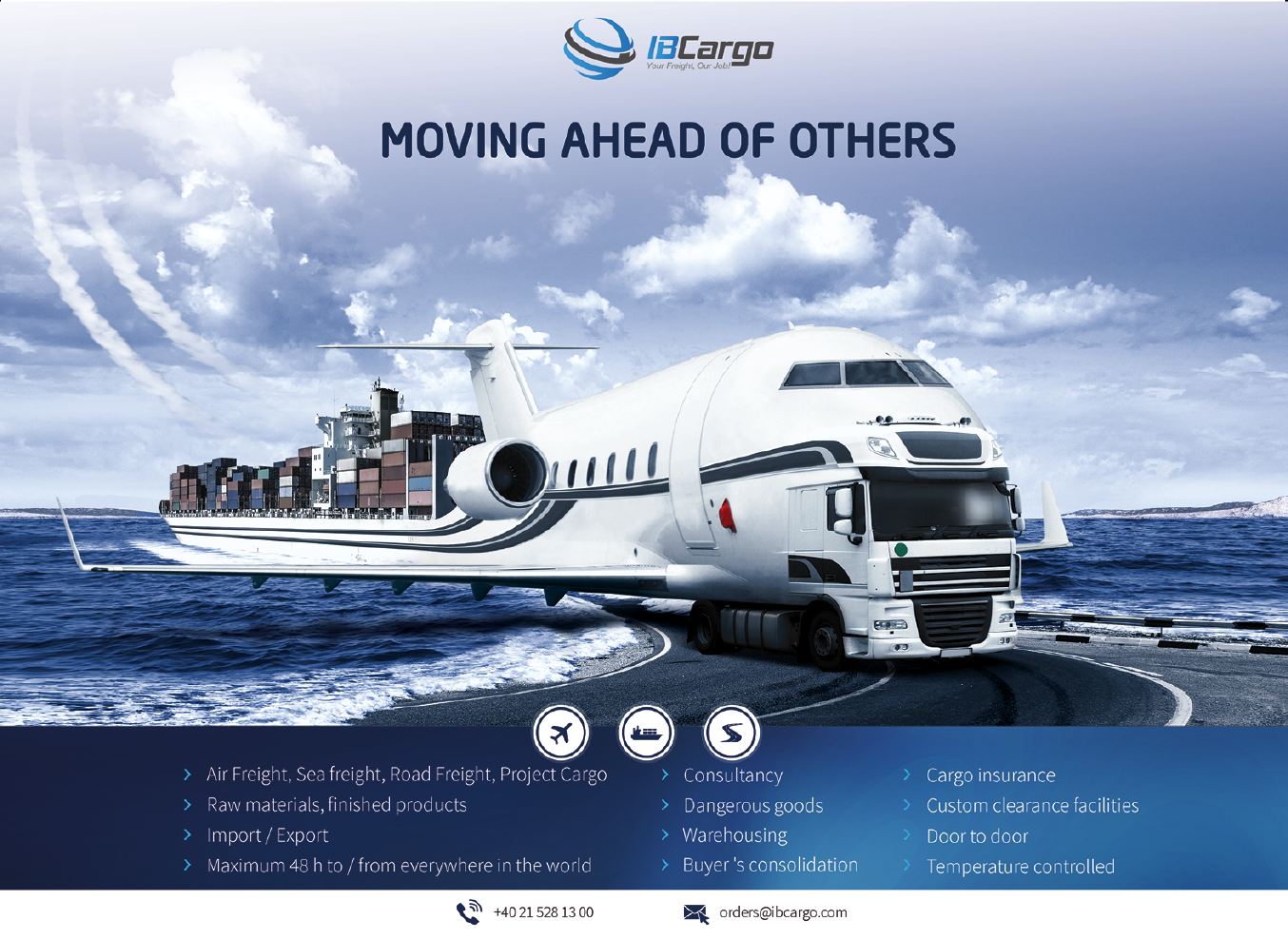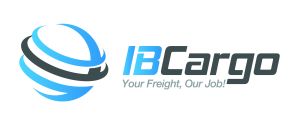Q: One of your company statements is that you can reach any commercial destination in the world, by any means of transport. What are the trends in the air, sea, road or any kind of cargo, now?
Catalin Putineanu: International trade of goods grew by 5.5% in 2017, up from a range of 2.3% in 2016, according to IMF data. In both advanced and emerging economies, there was a resurgence. In particular, improvements in the US, China and Japan, as well as the European Union, contributed to increased global demand growth, which in turn has led to an upsurge in forwarders’ volumes.
In the global forwarding market, growth of 4.9% year-over-year was recorded in the first half of 2018, with air freight forwarding expanding 5.3% and sea freight forwarding growing 4.3%.
Analysis also reveals a real terms full-year growth forecast of 4.1% in 2018, as annual growth slips from the 8.0% seen in 2017, primarily as a result of the global restocking cycle coming to an end. As such, the market is expected to reach a value of €148.8bn in 2018.
Q: Transport is considered being one of the most influential and vibrant systems in the economy. What does this industry tell us now? How do you perceive the general trends of the world and the local economy?
Catalin Putineanu: From what we see now on the market it is possible that starting next year we will witness a slow down of the growth we got used to within the past few years. Small to medium size emergent economies such as Romania will be affected but not drastically.
What really caught my attention was the prediction Boeing made for the air cargo industry.
The global freight fleet will have to expand by more than 70% to meet demand as it expects air cargo traffic to double over the next 20 years.
An increase in global airline demand is estimated at 4.2% annually over the next two decades, driven by global retail sales. China and the Asia-Pacific region are the largest e-commerce market in the world followed by the US.
Dedicated freighters will continue to serve over 50% of global air cargo demand over next two decades. With 90% share of the freighter market, Boeing is well positioned to capture this growth and set trends in the air cargo industry.
Q: As a CEO, what are the main challenges you see now in the freight industry?
Catalin Putineanu: Finding the right people. There is no specialized school or formal training in the field of freight in Romania. Most of the companies have to hire juniors or non-experienced personnel and invest into training before hopefully seeing positive outcomes.
Q: As a CEO, you also must lead the transformation process. How do you do it in your company?
Catalin Putineanu: Transformation is always difficult and energy consuming. In order to succeed you need to help people understand the big picture, the benefits and their roles in achieving them. Then, you get them involved in the process of generating solutions, ideas and change.
Q: Nearly every industry in Romania is facing the challenge of the oil price evolution and the workforce scarcity. How do you deal with such challenges and what kind of solutions do you implement to save time and money for your clients?
Catalin Putineanu: We work towards healthy, long-term partnerships with clients or our partners or our employees and this is why we have a very low fluctuation rate. There are many people working with us since 2008, when I started the company.
As the company grows, we recruit juniors which we develop as specialists in different services.
Q: What is the impact of the fourth industrial revolution on your company, on your industry and in addressing your clients’ needs?
Catalin Putineanu: You need to always update in order to keep up with developments and in you need to be one step ahead of your client’s needs in order to be able to offer them a constant great experience. For this we implemented IT solutions that help us see the opportunities, the areas where we need to improve and we work on other developments that will help the clients and the team.
Q: How do you prepare yourself, to become better, as a leader? How do you get out of your comfort zone? How do you find the right work-life balance?
Catalin Putineanu: Reading, studying, traveling for both business and pleasure and meeting people with fresh and uncommon visons, adapting strategies from other industries. I realized the importance of being balanced professional vs personal, otherwise one cannot perform constantly well on long term. Besides working I manage to find quality time to spend with my family, time for doing sports and for following my passions -one of the last I just discovered -photography.
Q: In the past few years, Romania has had a very large economic expansion and 2019 still looks good. What are your expectations for 2019? There are business people who say ‘’we must have a slowdown and it should be in 2020’’. Are these people wrong?
Catalin Putineanu: I founded the company in full crisis in 2008 and, since then, year after year we grew constantly, healthy. So we know how to deal with difficult situations.
Right now everything looks good, still growing and an eventual slow down will be balanced between advanced-economy growth deceleration and the recovery in major commodity-exporting emerging market and developing economies. We will see.
Q: How do you see the outlook of your company and industry on short, medium and long term?
Catalin Putineanu: We will always do our best in order to overpass clients’ expectations. As long as we will continue to perform, to be passionate of what we are good at and to be there for our customers when they need us I am positive our company will be in a very good position on the long run.
Q: What is your good attack strategy for the markets in 2019 and what is your good defense for what might come?
Catalin Putineanu: Our strategy is to do a great job and to deliver the clients the solution they need, in the time and budget they need in order to give them time and peace of mind to focus on what they have to do. As I said before we grew in full crisis in 2008, 2009, 2010 so we have experience to offer security to our clients.
What might come is something very unpredictable, but we have enough experience to react on time and with minimum impact in our business or our partners businesses.
Q: In your opinion, as a CEO, which is the most important question to ask in the investment committee: what can go right, or what mistake we cannot afford to make? Why? Is there any other question that you would ask your investment committee for 2019?
Catalin Putineanu: Does this investment match my investment goals? Why is this investment suitable for me?



































